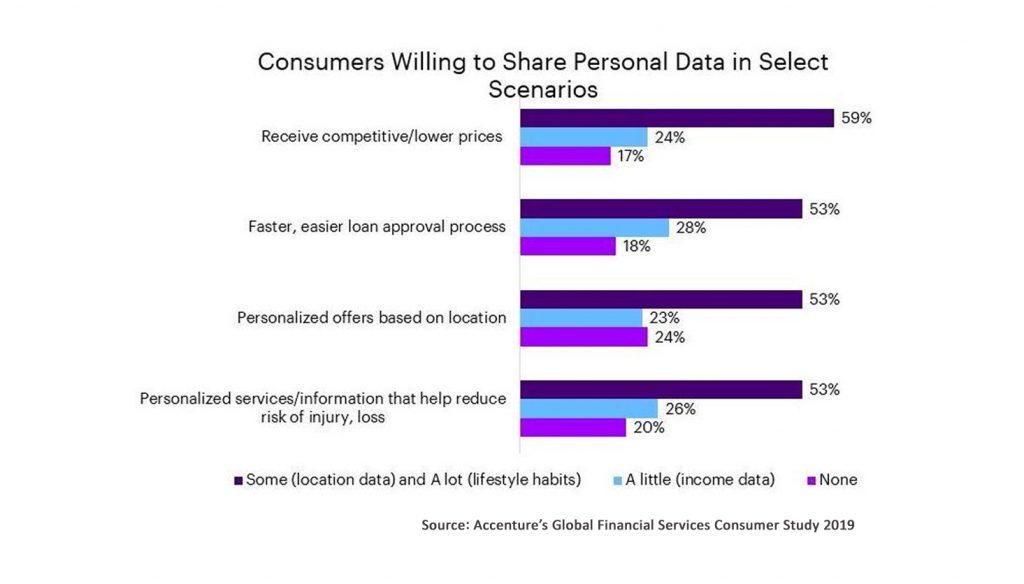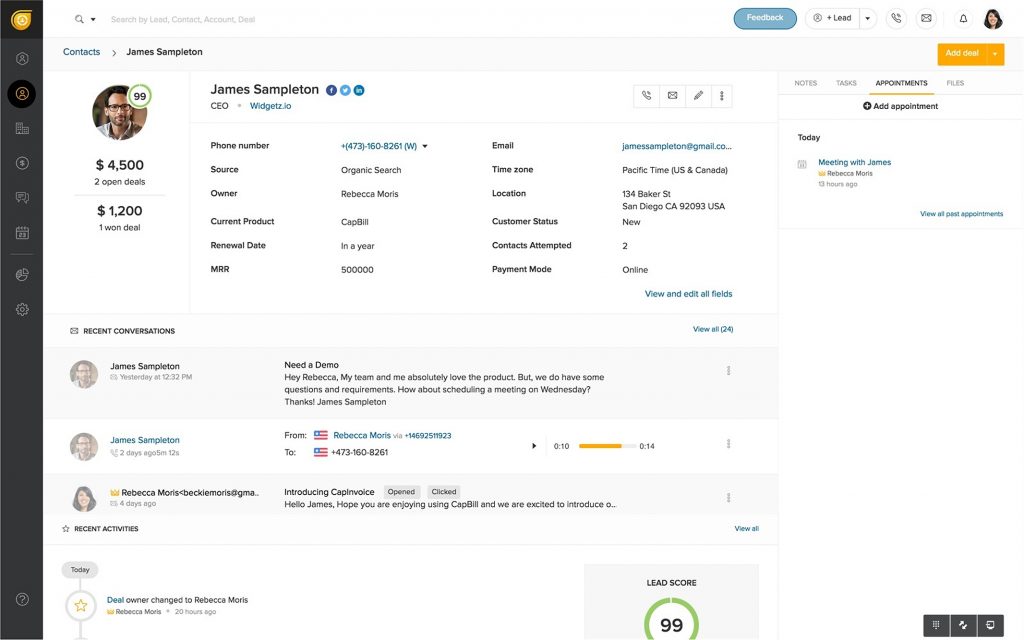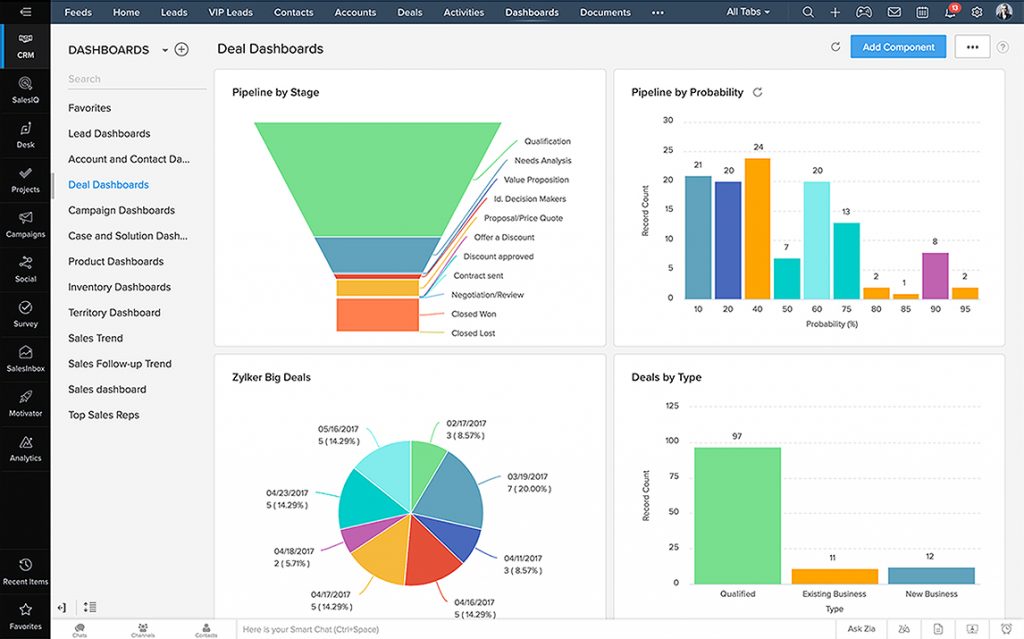Every marketing or sales strategy begins with a single, pre-determined focus—contacts. These are either prospective or existing customers who are targets of promotional campaigns to market or sell a product or service.
However, to succeed in business, it’s not enough to simply know people and organizations. What’s more important is to have a great strategy on how to use your business contacts to your advantage. And whatever a business does with its list of contact spells the difference between success and failure.
And this is where contact management software comes in. This technology helps you to better optimize your contact database to boost your business revenue and accelerate productivity.
What Is Contact Management Software?
Most contact lists that people keep are actually out of date. On average, of the numbers and email addresses stored in contact lists, 25% are no longer in service. For businesses, this means missed opportunities, not to mention the considerable waste of company time and resources. Businesses should also engage in a continuing effort to gather quality customer information to keep their lists fresh and relevant.
Contact management software gives the needed order, direction, and optimization to a company’s wealth of contacts. It helps businesses close the gap between marketing and actual sales by facilitating lead conversions. It also offers crucial reporting and analytics capability that helps ensure contact entries are up-to-date and refreshed regularly.
Smart automation is another notable functionality of contact management software. These solutions are designed to easily integrate customer information to generate multiple data sets. They also help businesses generate KPIs like conversion rates and lead time to support data-driven decisions.

These survey findings present some valuable strategies on how to keep a company’s contact list updated with valuable customer information.
List of Best Contact Management Software
These are today’s expert-selected and customer-preferred contact management systems:
- Freshsales. Freshsales is an all-in-one contact management solution that is easy to use and customize to suit any specific business requirement. Also, with a built-in CRM, this platform is designed to allow for easy viewing of a contact’s various details, including personal information, transaction histories, deals, etc. Freshsales offers a free-forever plan, with paid plans starting at $12 per user per month.
- Zoho CRM. This robust solution empowers businesses to manage their phone, email, and social media contacts using a single, user-friendly interface. It also offers some notable innovative features, such as Zia Voice, a tool that provides business users the convenience of using voice commands to manage contacts and derive powerful market insights. It also offers a forever-free plan, while its paid plans start at $12 per user per month (Standard) and $20 per user per month (Professional).
- Salesforce Essentials. Another intuitive offering from Salesforce, Essentials uses advanced AI to help teams of SMBs to enhance their sales efficiency and provide seamless omnichannel customer support. It is designed to enable businesses to optimize their contact lists to deliver top-tier service. It offers a free trial and paid subscriptions start at $25 per user per month.
- InfoFlo. This is another popular contact management tool packed with innovative features but is easy to use by small and medium businesses and freelancers. It functions as a comprehensive solution for managing business contacts and customer relationships. InfoFlo is also one of the most affordable solutions on the market today at a $99 one-time price tag, which already includes upgrades.
- Nimble. Nimble is a smart technology-powered contact manager that offers numerous features designed to harness the power of social media. This is why it offers smart tools like social profile matching and enrichment as well as social prospector—all of which facilitate richer social media engagement. Nimble paid plans start at $9 per user per month.
- HubSpot CRM. This is a 100%-free leading contact management and CRM solution that provides businesses a centralized contact database to optimize leads generation and marketing management. Its key features include robust deal management tools and analytics. More advanced paid features are available, including the option to integrate with other HubSpot solutions.
- Blue Link ERP. This is an all-in-one contact management, inventory management, and accounting solution made especially for distributors and wholesalers. The contact management function offers sophisticated features out-of-the-box, such as single point of entry, prospects tracking, and quote conversion into orders. Pricing is quote-based.
- Salesmate. This solution is designed to help businesses make the most of their interactions with prospective and current customers at every opportunity. With industry-specific features, Salesmate enables users to enhance sales outcomes, grow relationships, and prioritize communications. It offers a free trial, while paid plans start at $15 per user per month ($12 for annual).
- Teamgate. An award-winning contact management solution, Teamgate is an easy-to-use platform that provides businesses a simplified and effective approach to managing contacts. Its core features include a smart contact management database, Smart Dialer, and reminders. Pricing starts at $9 per month.
- Bitrix24. This is a totally free online contact management solution that offers businesses a host of benefits. Aside from managing an unlimited number of contacts, Bitrix24 also offers automation, email, and call features. This solution is free for up to 12 users, while its premium plans start at $19 per month for 2 users.

Freshsales gives businesses a 360-degree view of their contacts, including details like email, messages, etc.
Types of Contact Management Software
Your contacts are the heart of every piece of your marketing and sales strategy. Whether you have a database of five contacts or 10,000, you need to understand how you think about your contacts. Implementing a strategy for how you manage your contacts will help you and your business achieve the goal of higher engagement. Getting an introduction to contact management is the first step in achieving this goal.
There are only two major types of contact management solutions, namely:
On-premise. This type of contact management software has a single license and is hosted on the user’s local server. On-premise contact management solutions are the more expensive type because they tend to include the need to install costly hardware and complicated structure. This kind of software is installed within company premises and not on facilities like a server farm.
SaaS. The other type is Software-as-a-Service (SaaS) contact management solutions. Deployed on-demand, SaaS programs are provided on a per subscription basis, usually paid per month. These are hosted centrally from the vendor’s servers and are easier to use since the installation and updates are automatic. Most of these are now cloud-hosted.
Main Features of Contact Management Software
Business contacts comprise the core of any sales plan or marketing program. It doesn’t matter if you have 10 or 100,000 contacts in your database; what matters most is that you give quality to your contact list. The crucial thing is that you know how you what your contacts want and you know to engage them to your advantage.
Thanks to computer technology, every business now has a readily accessible and efficient way to engage its contacts. Here are the main features of a typical contact management system:
- Import and export of contact information. The system allows business users to easily import and export all contact details and related documents from and to several sources and channels.
- Customization. Aside from allowing for the adding of new fields and records, contact management solutions also let users customize the systems’ interface as they prefer or require.
- Appointments scheduling. Sales teams can use these solutions for setting appointments utilizing a contact database, including the sending of emails to inform and remind contacts of upcoming schedules.
- Integration. It allows users to incorporate contact data with the different software systems that a business currently uses.
- Automatic dialing. Businesses can now use a contact management platform to automatically dial any contact included in the database. The software can also generate information regarding appointment schedules, etc.
- Transaction recording. The platform should allow any user to easily record data from online sources like social media networks and web pages, such as when a new contact signs up for a site’s email list.
- Direct fax. The system can allow users to fax and email straight from the system.
- Reporting and analytics. Businesses can generate data-driven reports and insights using the contact management software’s advanced technological capabilities.
Top Benefits of Contact Management Software
Contact management solutions offer a host of benefits. The most essential for businesses are as follows:
Improved efficiency. A contact management system works mainly to organize and optimize a company’s business contacts. By applying technological features, this solution helps any business to make the most of their contact list, such as by allowing enhanced lead conversion into actual sales operations, improved staff productivity, etc.
Track user behavior using analytics. Alone or when integrated with a CRM solution, contact management software can generate actionable insights from a contact list or customer activities on online channels.
Choice marketing. This system can help marketing teams to better prepare campaigns that directly target customer preferences.
Easy interaction recording. With today’s generation of contact management platforms, companies can automatically record all transactions done with any business contact. Be it a phone call, chat, email, or SMS; a business can be sure that every transaction is recorded for customer support, marketing, and sales purposes.
Seamless information sharing. Another reason why these solutions had become indispensable among today’s businesses is that every contact information can be easily accessed and shared among teams in various corporate departments. These capabilities can be done without any time or place restrictions, as long as the user has valid access credentials.
Enhanced customer service. Another main design objective of any contact management solution is to enhance customer support. By providing businesses with data-driven data on customer behavior, these solutions can help customer service teams to better engage customers, including the provision of correct and timely support.

Zoho CRM offers one of today’s best contact and leads management features, which are designed to help marketers gain high lead conversion rates.
Latest Trends
As a leading business app, contact management solutions often come with innovations and exciting trends. Some of those are as follows:
Artificial Intelligence and machine learning. Today’s leading vendors are already providing AI-powered contact management solutions with expanded capabilities. Some of these innovative features also include machine learning.
Omnichannel use. The provision of internal and external capabilities to support omnichannel communication is further expanding the contact management domain. Businesses can now source contact data from various channels.
Contextual contact lists. If you want to search for a customer in a contact list, you typically browse using an alphabetically-arranged record. Nowadays, there are contact management solutions that allow you to look them up using multiple search criteria, like dates when you met a contact, where does he or she work, or how are you related to that contact.
Image-based contact. Contact management solutions can now add a contact’s personal information by merely snapping a photo of him or her. This innovation allows you to obtain names and email addresses by using their digital images. Likewise, this technological trend enables businesses to connect with contacts through their social media profiles.
Potential Issues
Any type of technology solution, from the simplest to the most complicated, is susceptible to issues of varying degrees. Here are some potential ones that contact management solution users are likely to experience:
Vendor’s credibility and support. A software vendor’s track record weighs a lot in the software products they provide. In this regard, vendor reputation and customer support should be a priority when it comes to product selection. Never transact with software providers with questionable reputation and bad support.
Limited integration. The market is full of excellent stand-alone contact management systems, with some offering limited integration capabilities. Only choose solutions that won’t give you problems when it comes to integrating with existing apps.
Vulnerability to attacks. Since most of today’s SaaS platforms are cloud-based, a company’s contact lists and other confidential information are handled and stored in the software vendor’s cloud-based servers. To ensure your business data is safe, use the service of reputable vendors.
Flexibility and scalability. The needs and size of any business vary. As such, issues of scalability and flexibility of software solutions tend to emerge. It’s highly recommended that you use contact management solutions that are flexible to a company’s changing needs and scalable enough to support variations in operational volume.
What to Look for When Buying a Contact Management Software
Before choosing the contact management solution, it’s good practice to ask some key questions to help you reach the most sound decision. Here are some questions to ask:
- For what business size is the software designed for?
- What is the total cost of the solution?
- What kind of security protocols are integrated?
- Is it user-friendly, or does it require a steep learning curve?
- Upon learning how to use it, can I easily train my employees?
- What is the setup procedure like? Will there be any technical assistance provided?
- Is there a minimum number of users?
- Can I easily integrate it with my existing apps?
- Are there any hidden fees?
- Is the API easily accessible?
